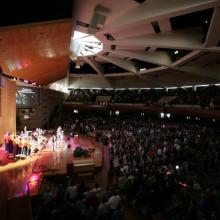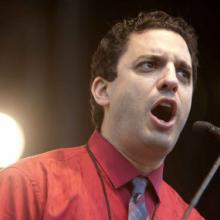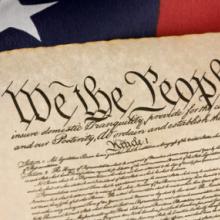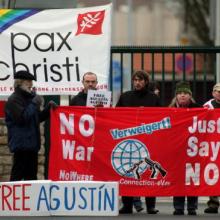First Amendment
Goodpasture Christian School sits on a sprawling, bucolic campus seven miles north of downtown Nashville, where 900 students ready themselves for adult lives of college, career, and loving the Lord.
Right next door sits the United Fellowship Center, a planned church where adults will ready themselves to have sex with each other after enjoying a little BYOB togetherness.
It’s the newest incarnation of The Social Club, a whispered-about swingers club in downtown Nashville that left for the suburbs when a building boom took its parking lot. The community went bonkers after zoning hearings revealed the club’s plans to relocate in a former medical office building in Madison — adjacent to Goodpasture and within a mile of an Assemblies of God megachurch.
After months of debate, an emergency city zoning amendment and a state law designed to stop the relocation, the club’s attorney made an announcement: The Social Club would open in its new location as a church.
Protection via the First Amendment effectively silenced zoning complaints — for now. But it sparked conversations about what it means for a secular organization suddenly to label itself a church, and religious scholars seem no more ready to plunge into that debate than American courts have proved to be.
“When I see this case, I do roll my eyes, but I also know Protestant Christians in America don’t own 'church,'” said Kutter Callaway, assistant professor of theology and culture at Fuller Theological Seminary in Pasadena, Calif.
Sit down and shut up.
That’s the message of a campaign launched Sept. 8 by the American Humanist Association, asking Americans to refrain from standing and reciting the Pledge of Allegiance until Congress removes the phrase “under God.”
The 29,000-member humanist activist group, which also advocates on First Amendment issues, holds that the phrase “under God” is an unconstitutional establishment of religion.
“Until the Pledge is restored to its inclusive version, we can take it upon ourselves to refuse to participate in what’s become a discriminatory exercise,” the campaign’s website, Don’t Say the Pledge, says. It also describes the current pledge as “twisted, with divisive religious language that implies true patriots must be believers.”
A well-established international Christian student group is being denied recognition at almost two dozen California college campuses because it requires leaders to adhere to Christian beliefs, effectively closing its leadership ranks to non-Christians and gays.
California State University, which has 23 campuses, is “de-recognizing” local chapters of InterVarsity Christian Fellowship, an evangelical Christian group with 860 chapters in the United States. The university system says InterVarsity’s leadership policy conflicts with its state-mandated nondiscrimination policy requiring membership and leadership in all official student groups be open to all.
“For an organization to be recognized, they must sign a general nondiscrimination policy,” said Mike Uhlencamp, director of public affairs for the California State University system. “We have engaged with (InterVarsity) for the better part of a year and informed them they would have to sign a general nondiscrimination statement. They have not.”
The decades-long battle over a cross erected on public land in California will drag out even longer now that the Supreme Court declined Monday to hear the case.
The conflict in Mount Soledad Memorial Association v. Trunk, is over a 43-foot cross that sits atop Mount Soledad on public land in San Diego. The cross was erected in the 1950s and has since become a veterans’ memorial.
The U.S. Supreme Court on Monday let stand a lower court ruling that a Wisconsin high school acted unconstitutionally when it held its graduation ceremonies in a local megachurch.
As is their custom, the justices did not give a reason for declining to hear a challenge to the 7th Circuit ruling.
Monday’s decision may be a signal by the court that despite its approval of sectarian prayers at public meetings in the Town of Greece v. Galloway decision in May, it draws the line at exposing children to religious symbols when they have not choice about it.
This week’s Supreme Court ruling allowing sectarian prayers at public meetings dealt a body blow to atheist organizations.
That was the assessment of David Silverman, president of American Atheists, speaking Tuesday to a group of nonbelievers at Stanford University. He then described a scenario that may raise eyebrows among some atheists: working with religious groups to fight against the ruling.
That’s a change for a man who has famously described religion as a “poison.” And it is emblematic, observers say, of the change that may result from the majority opinion in Greece v. Galloway, which found that prayers citing “the blood sacrifice of Jesus Christ” are permissible before government business.
Other secularists are likewise convinced that now is the time for atheists to join forces with members of minority faiths.
On Monday, the U.S. Supreme Court ruled that a city, town, or county could open its regular meetings with a sectarian (that is, Christian) prayer without violating the First Amendment’s Establishment Clause. Not unexpectedly, the much-anticipated Town of Greece v. Galloway decision split the court 5-4. It is, for that and other reasons, a less than satisfying decision.
During the Crusades, conversion by the sword was a common practice. Today, it’s conversion by the bullet.
A growing trend in evangelism among some more conservative churches is to promise people a gun in exchange for attendance.
Some more prominent examples from the past few weeks: In Kentucky, several churches are hosting “Second Amendment Celebrations,” which feature a steak-and-potatoes dinner followed by a conversion sermon preached by a former pastor, outdoor TV host, and gun enthusiast. Attendees are promised the chance to win a firearm in exchange for showing up and staying to the end of the event. In New York, one church is planning to end its Sunday worship service with a raffle for a free AR-15 to honor “hunters and gun owners who have been so viciously attacked by the anti-Christian socialist media and antichristian socialist politicians the last few years.”
The organizers of these events claim they’re an effective way to bring people to Christ. By uniting gun culture with Christianity, they’re reaching out to an unchurched population to lead them to salvation.
Conservative Christians are claiming that their religious freedom requires free rein for legalized discrimination.
That’s a clever argument. It seems to claim the moral high ground, to align itself with basic constitutional principles, and to put bigots in the victim role.
The argument is utter nonsense, of course. Freedom of belief has nothing to do with compelling other people to bow to that belief. If anything, freedom of belief should lead to a broad umbrella of diversity, not a parched patch of prejudice.
The First Amendment to the Constitution, after all, sought to guarantee freedom — of religion, speech, the press, assembly, and petitioning the government — not to grant freedom to some and not others, depending on the whims of the powerful or pious.
An organization of nonbelievers is threatening legal action against public schools that participate in an evangelical Christian charity that delivers Christmas toys to poor children.
The American Humanist Association, a national advocacy organization with 20,000 members nationwide, sent letters this week to two public elementary schools after parents complained their children were being asked to collect toys and money for Operation Christmas Child.
Operation Christmas Child is a project of Samaritan’s Purse, an evangelical relief organization founded by Franklin Graham, son of evangelist Billy Graham. Its stated mission is “to follow the example of Christ by helping those in need and proclaiming the hope of the Gospel.”
The toys collected by Operation Christmas Child come with an invitation for recipients to accept Christianity. Since its founding in 1993, Operation Christmas Child has sent 100 million boxes of toys to poor children.
The Supreme Court struggled Wednesday with a case that asks whether government bodies can open with prayers that some people find overly religious and excluding.
From their lines of questioning, it’s unclear whether the court is ready to write new rules on what sort of prayer falls outside constitutional bounds. And more than one of the justices noted that just before they took their seats, a court officer declared: “God save the United States and this honorable court.”
Few court watchers believe the justices will rule all civic prayers unconstitutional — the nation has a long history of convening legislative bodies with such language.
Rather, the question raised by Town of Greece v. Galloway is how sectarian these prayers can get.
Todd Starnes did not think he had violated Facebook’s community standards when he posted about “wearing an NRA ball cap, eating a Chick-fil-A sandwich, reading a Paula Deen cookbook and sipping a 20-ounce sweet tea” and generally being politically incorrect.
Workers at Facebook thought otherwise, blocking the host of “Fox News & Commentary” for 12 hours before issuing an apology.
Starnes and other conservatives say the incident is part of increasing viewpoint discrimination from organizations such as Facebook and Google. They want these new media companies to protect their freedom of speech.
Following more than 200 houses of worship being denied FEMA aid following Superstorm Sandy, on Feb. 13, the House of Representatives passed H.R. 592 with a vote of 354-72, to clarify that houses of worship are “eligible for certain disaster relief and emergency assistance on terms equal to other eligible private nonprofit facilities, and for other purposes.” From The Hill:
Supporters of the bipartisan bill, H.R. 592, said federal aid to houses of worship is not a violation of the Constitution when that aid is meant to be used broadly for a range of affected entities. In those cases, federal aid need not be withheld from houses of worship that are, like many others, seeking to repair their buildings from storm damage.
"There is no intrinsically religious purpose in providing disaster assistance," said Rep. Nick Rahall (D-W.Va.), a supporter of the bill.
Read more HERE.
Today is Religious Freedom Day — a day to celebrate the adoption of Thomas Jefferson’s Virginia Statute for Establishing Religious Freedom. Why celebrate it?
Celebrate because our government does not use our tax dollars to propagate religion, something Jefferson found “sinful and tyrannical.” This does not mean that you have a right to stop any government action that you happen to think violates your religious beliefs — a ridiculous claim repeated during last year’s battle over insurance coverage for contraceptives.
A federal judge has temporarily blocked enforcement of a city law that was recently used to arrest Christian evangelists who were preaching on Bourbon Street during Southern Decadence, the annual celebration of gay culture in the French Quarter.
Part of the city's recently enacted "aggressive solicitation" ordinance orders people not to "loiter or congregate on Bourbon Street for the purpose of disseminating any social, political or religious message between the hours of sunset and sunrise."
"That's no longer in effect," American Civil Liberties Union lawyer Justin Harrison said.
U.S. District Judge Eldon Fallon granted a temporary restraining order on Sept. 21 and set a hearing for a preliminary injunction for Oct. 1.
Nine Christian preachers and activists were arrested in one well-publicized incident during the gay-themed celebration. One reportedly held a sign reading "God Hates Homos," and others shouted what witnesses characterized as slurs.
Cheerleaders at an East Texas high school are fighting their school district’s orders to stop using Bible quotes on their signs at football games.
In August, cheerleaders at Kountze High School, a school with fewer than 500 students 30 miles north of Beaumont, Texas, began painting Bible verses on large paper signs football players burst through at the beginning of games.
But this week, Kountze Independent School District Superintendent Kevin Weldon called for an end to the banners after consulting with a legal adviser at the Texas Association of School Boards.
“It is not a personal opinion of mine,” Weldon told KHOU, a Houston television station. “My personal convictions are that I am a Christian as well. But I’m also a state employee and Kountze ISD representative. And I was advised that such a practice would be in direct violation of United States Supreme Court decisions.”
That prompted the cheerleaders and their supporters to launch a Facebook page, “Support Kountze Kids Faith,” which attracted 34,000 members in its first 24 hours — more than 10 times the population of Kountze.
Parents of at least three cheerleaders have hired an attorney and are considering suing the school district.
As I was driving today I had the radio on scan. It filtered through the stations skipping to the next station automatically. Station after station came and went. I finally stopped it on a talk show.
I listened for a time as the host was telling anyone who would listen including me that our country is moving full steam ahead in the wrong direction. He predicted the worst and called Christians to rise up and reclaim our nation.
This was not the first time I have heard such fear mongering. Not too long ago someone warned me that our government would soon “come after churches that don't toe the party line.” Another told me that our government was out to destroy the Christian faith. I think this sounds great.
Missourians will vote on Tuesday on a proposed amendment to the state constitution that supporters say would protect residents' right to pray in public. If a recent poll is any indication, it could pass by a mammoth margin.
Supporters say the so-called "right to pray" ballot measure — known as Amendment 2 — better defines Missourians' First Amendment rights and will help to protect the state's Christians, about 80 percent of the population, who they say are under siege in the public square.
Opponents, meanwhile, say that the religious protections Amendment 2 would offer are already guaranteed by the Bill of Rights and the U.S. Constitution, and that it will open the door to all manner of unintended and costly consequences including endless taxpayer-funded lawsuits.
The Supreme Court decision on the ministerial exception deserves a "hosanna" — and prayerful consideration.
One of the U.S. Constitution's difficult balances is found in the freedom of religion clause of the First Amendment:
“Congress shall make no law respecting an establishment of religion, or prohibiting the free exercise thereof …”
What happens when those two values conflict?
That is the issue with the controversy over whether religiously-affiliated organizations should be required to offer free coverage for contraception in health insurance plans made available to employees. Those opposed — most notably Catholic organizations — claim that this requirement would violate their freedom of conscience. Those who support it claim that exempting religiously-affiliated organizations would establish a religion over the rights of individuals.
















